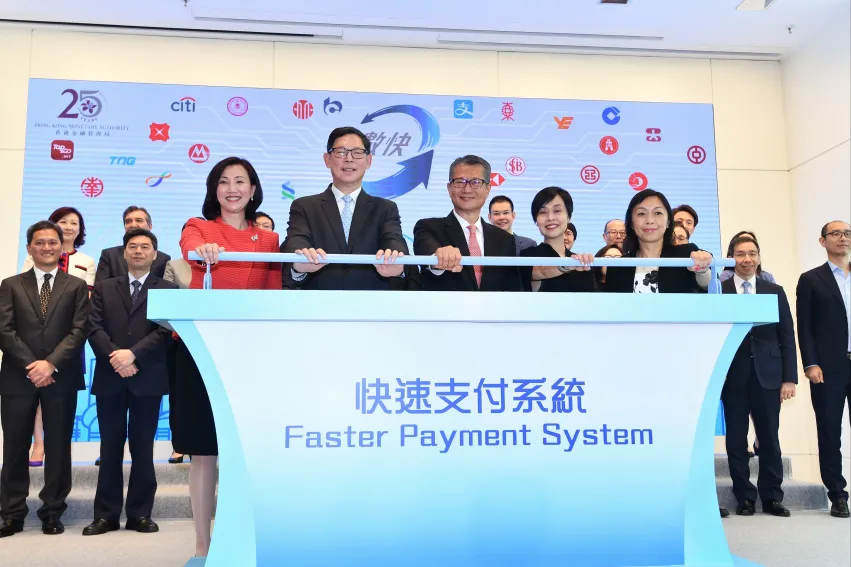
Virtual cash management tools are taking off in Asia
Global transaction banking revenues are estimated at nearly $1t in 2017 or 43% of wholesale banking revenues.
When India’s Kotak Bank deployed its new strategy meant to woo corporate treasurers, a digital-powered approach that unlocked efficiencies and made life easier for end-consumers was a foremost consideration. The bank’s new cash management solutions must be capable of supporting multiple payment and collection methods through single integration – or else, it might risk losing out business to savvier fintech firms that promise lower fees and quicker processes.
The burden on corporates is becoming more palpable: finance staff in banks spend about 15% to 20% of their time on reconciliation due to suboptimal processes, estimated Shekhar Bhandari, Sr., EVP and business head for global transaction banking and precious metals at Kotak Mahindra Bank. “A plethora of payment options in the country have created a landscape for corporate and government bodies to offer multitude channels to their customers, whilst the same has also created complexity and challenges in managing their funds flow and the associated information flow leading to reconciliation issues,” said Bhandari. “Corporates are seeking solutions that can ease this complexity to be able to present bills, receive collections, and manage the reconciliation across various channels in a seamless manner.”
In India, enabling customers’ business efficiency and integrated cash management solutions has become a key differentiator in what has become a highly competitive industry. Kotak is focusing on developing digital solutions that enable Indian corporates to keep up with their increasingly complex cash management needs. The bank’s ALLPAY e-commerce application has been designed for Indian merchants, fully supporting structured e-invoicing and helping streamline electronic receivables as more end customers prefer to transact online.
“Cash management is set for a complete digital overhaul and banks should be ready to grab the opportunities arising out of it,” he said. “Quicker integrated product designs and less time to market would be the key to cater to the fast-changing product environment, customer expectations, market dynamics as well as regulatory and technological changes.”
The focus for cash management service offerings will no longer be solely on the digitisation of the end product, but on the entire ecosystem for product delivery. “A structured service and implementation team that engages with customers for service and specific technological implementation requirements will emerge as a hook in the coming years,” said Bhandari.
Cash cow
The stakes for winning in the digitisation battleground are high. According to management consultancy firm McKinsey, global transaction banking revenues are estimated at nearly $1t, or 43% of wholesale banking revenues, in 2017. Of this, cash management - domestic and cross-border payments, including liquidity management - accounts for $500b.
The number and diversity of organisations vying for a piece of the transaction banking pie have risen significantly over the past decade. Potential rivals to incumbent banks now include digital consumer-to-business payments platforms and ecosystems, IT companies, export credit agencies and even logistics companies. “Banks can safeguard their client relationships, expand advisory services, and strengthen margins only if they take the lead in developing new strategies to address digital disruption in global transaction banking,” reckoned McKinsey. “There is significant risk that banks will cede important aspects of the business to emerging digital challengers if they do not take advantage of recent advances in technology, regulatory changes and new partnership modes.”
In the Philippines, banks are taking up the digital call to arms. BDO, the country’s largest bank in terms of assets, has embarked on a digital transformation by upgrading its architecture to the cloud and building the foundations for API banking, said Edwin Romualdo G. Reyes, EVP and transaction banking group head at BDO.
“These core upgrades have cleared the path for BDO to build our digital cash management strategy, starting with the replacement of our long-standing cash management platform Business Online Banking, or BOB. BDO’s cash management platform of the future will provide an omni-channel approach to managing our clients’ cash positions and cash flow seamlessly, on any device and on the go. We will also be able to add new capabilities and services that will enable our clients to unlock the full potential of their ERP systems through direct integration with our core payment platforms.”
Reyes admits that Southeast Asia is playing catch-up to digital transformation in cash management. “These solutions are not new, but the outdated infrastructure of local Southeast Asian banks as well as the ‘paper-based culture’ have made it difficult to implement digital strategies.”
Reyes envisions that in the next five years, the new virtual cash management tools that will be offered on its future platform – tools that enable corporate treasurers to assess their financial position and make contextual decisions based on real-time information – will become “the normal way of doing business.”
Regulatory support
Similarly, UnionBank is also taking bold digital steps after introducing the country’s first API platform allowing corporate clients, fintechs or third-party developers to build applications and services around its products. “This API platform also empowers us to provide real-time updates to our corporate customers’ systems on payment or collection information, allowing for real-time posting and reconciliation,” said Dino Velasco, Cash Management Products Head at UnionBank.
UnionBank has been actively pushing for a wider adoption of electronic payments in the Philippines, emboldened by initiatives from the Bangko Sentral ng Pilipinas (BSP) aimed at encouraging digital payments. In 2017, the BSP launched PesoNET, a batch electronic fund transfer credit payment scheme that serves as an electronic alternative to the paper-based check system and UnionBank is currently ranked #1 in terms of transaction count for sending. With PesoNET and InstaPay – an electronic fund transfer service that allows customers to transfer funds near instantly between accounts of participating banks and non-bank e-money issuers – UnionBank said its corporate clients have seen faster and cheaper fund transfers compared to traditional methods.
Meanwhile, in Hong Kong, its de facto central bank introduced in 2018 the Faster Payment System, a payment infrastructure that facilitates instant payments in both the Hong Kong dollar and the renminbi. The Hong Kong Monetary Authority (HKMA) has said that the system addresses the “increasing market needs for more efficient retail payment services” and makes it easier for banking customers to make cross-bank and stored value facilities payments.
“I think a lot of the Asian countries are pushing for [online and faster payments], because there are expectations from the customer that they want the domestic transfer to be more online and more transparent, and the trend is moving in that direction,” said John Wong, head of global liquidity and cash management at Hang Seng Bank Limited. “From a cost perspective, they’re also expecting the banking charges from domestic transfers to be very low, rather than in the past where the monthly transaction costs quite a lot.”
Wong sees such regulatory support as well as customer demand for automated and secure transactions will encourage banks to move towards API connectivity as non-bank financial institutions
such as security firms, insurers and property management companies clamour for API usage. “They are looking for stuff [that is] automated with a very secure interface channel with the bank. That triggers all the excitement about API development.”
Wong expects virtual cash management tools to become even more vital in the next five years. “Customers really need transparency. If there are virtual cash management tools which help them
to have more transparency, which helps them to aggregate all their idle cash or cash balance across different geographies, and which helps to maximise their returns, that will be a very welcome and important decision making factor.”



















 Advertise
Advertise














